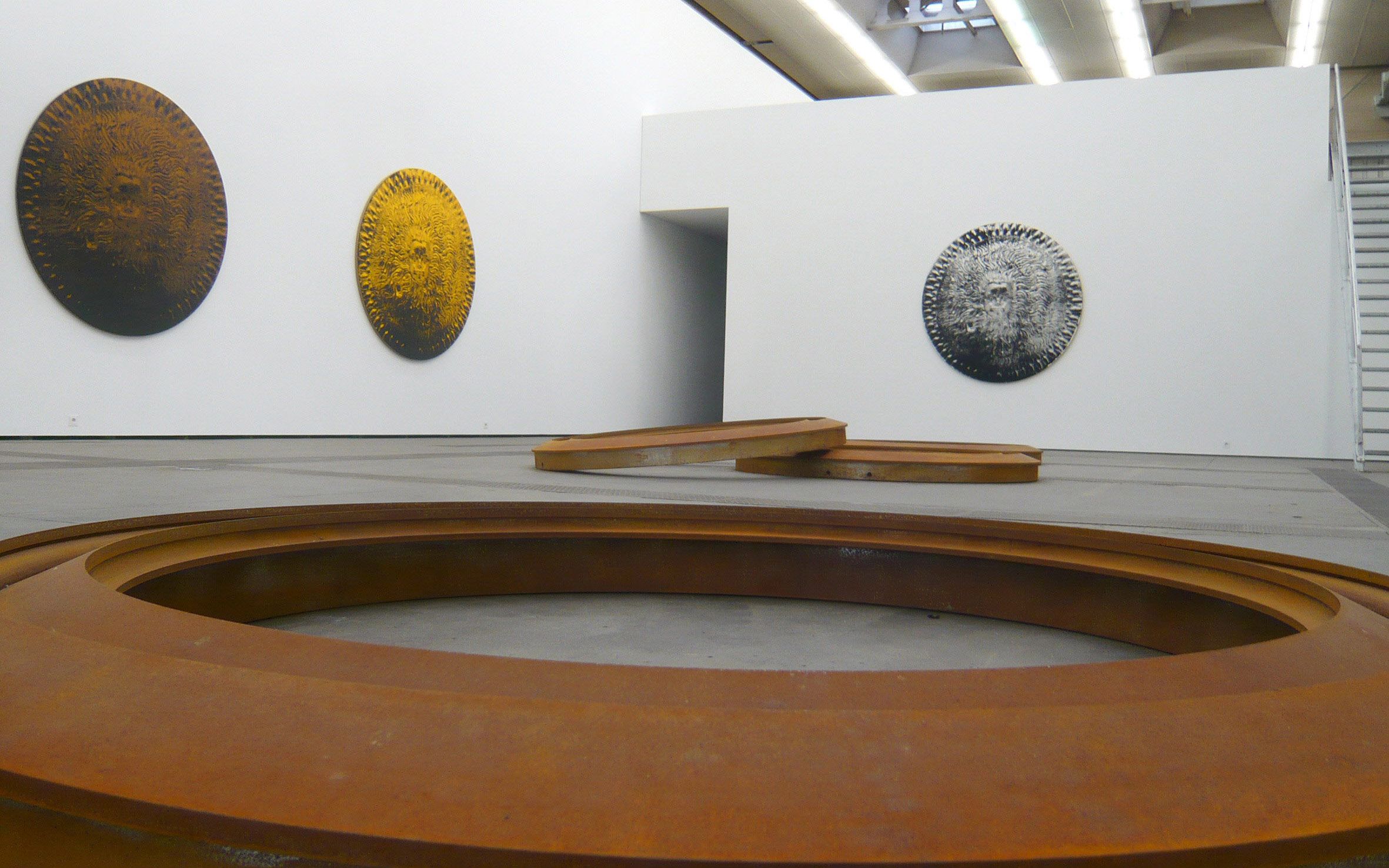At once awe-inspiring and deeply tragic, Mark Alexander’s work (b. 1966, England) reveals a mystical space where history compresses and the soul endures. These are painstakingly executed works, plotted along the axes of individual triumph and the fragility of cultural achievement, mapping a twilit world where transience and permanence blur. By recasting icons of the past from Homer’s Shield of Achilles, to the crumbling medieval statues of cloistered saints, to Van Gogh’s lost portrait of Dr Gachet. Alexander’s project is at once ‘post-temporal’, recalibrating man's relationship to art and time, and unflinchingly personal.
The prevailing motifs of tenderness and trauma are evident from Alexander’s first series of paintings in which a clutch of black-and-white baby photographs from his own infancy are invested with all of the dignity and disquieting power of monochromatic obituary daguerreotypes. Merely aligning these extraordinary works with the techniques of photo-realism would be to miss the depth of psychological exposure that invigorates them.
The death-in-lifeness and life-in-deathness which unsettles the Baby sequence is taken to historic proportions in a series of paintings that resuscitate a choir of ruined saint statues from a medieval cloister. Entitled Ozymandias whose very name conjures the ironies and fragmentation of power this series shows the aperture of Alexander’s imagination widen to embrace a vantage of the annihilated past, the brittle present, and the unreachable future in a mesmerizing millisecond.
From the unruinable ruins of history in Ozymandias, the trajectory of intensity and achievement in Alexander’s work penetrates to unexpected psychological depths in his subsequent sequence of works, The Blacker Gachet. By siphoning off all of the ostensible art and colour from Van Gogh’s iconic portrait of his fragile physician, Alexander taps not only into the mystery of the painting’s whereabouts (unknown since the death in 1996 of its owner, who threatened to cremate it) but into the disturbing emotional hues in which the work was originally steeped. The meta-realism of the Baby sequences and Ozymandias series has been brought to another level. In the dazzling blackness of the Gachets, Alexander has left undeveloped the snapped negative of the artist’s soul.
Above all, Alexander’s work mounts an assault on our comprehension of time, the unraveling of history, and where we’re headed. This is nowhere more evident than in his subsequent sequence of work, The Shield of Achilles, which emerges from an earlier vision undertaken in The Victory Series. Blazing to enormous size, these beaming medallions conjure luminously the classical conflicts of Homer while all the while glinting ambiguously with the uncertainty of the future. As if embodying Augustine’s troubled concept of history in which time present and time past are both present in time future, Alexander’s shields at once absorb and reflect the unfathomable proportions of our age.
Given the exhilarating scale of his artistic enterprise, it is not surprising that Alexander should find himself now forging new forms of expression to complement the shapes of culture that he has already reconfigured. Alongside the Achilles project, he has constructed arguably his most ambitious work to date an installation of huge hollow steel rings, based on ancient Minoan design, heaped in a spectacular wreck in the centre of the exhibition. Conjuring connotations of jettisoned booster bearings, invisible escutcheons, or the great cosmic lens through which God glimpsed our souls, the abandoned discs hunker as formidably and mysteriously as Iron Age cromlechs or burial mounds. Cryptically christened simply Shield, the work sprawls as a culmination of Alexander’s post-temporal realignment of the coordinates of tradition and time.
Kelly Grovier’s first collection of poems, A lens in the palm, is published in February 2008 by Carcanet (OxfordPoets), and his literary biography of London’s notorious Newgate Prison, The Gaol, is published in June 2008 by John Murray (Hodder). He is the founder and co-editor of the scholarly journal European Romantic Review and a regular arts and literature reviewer for the Times Literary Supplement and the Observer.
More about Mark Alexander
Reflections on the Shield of Achilles

